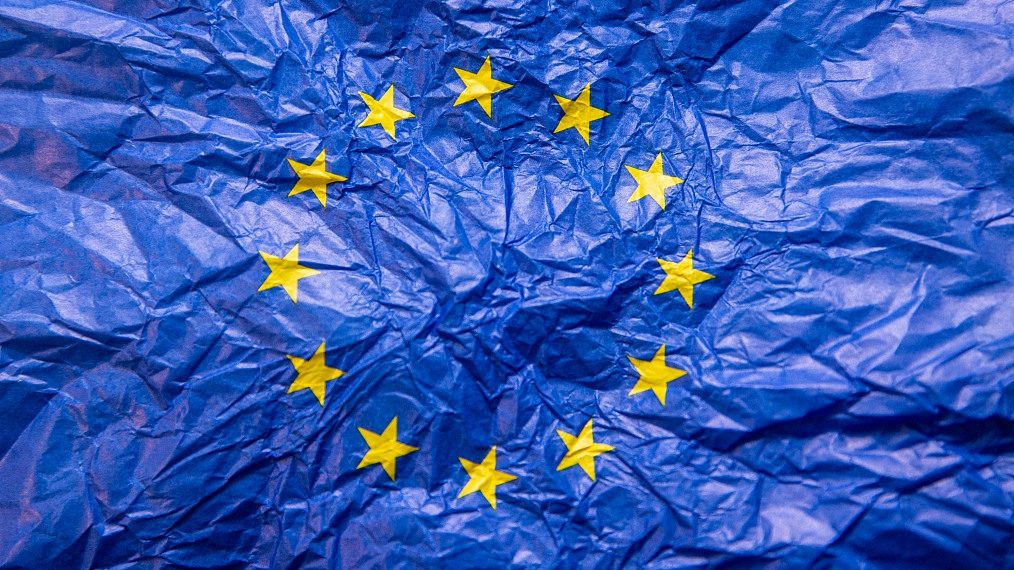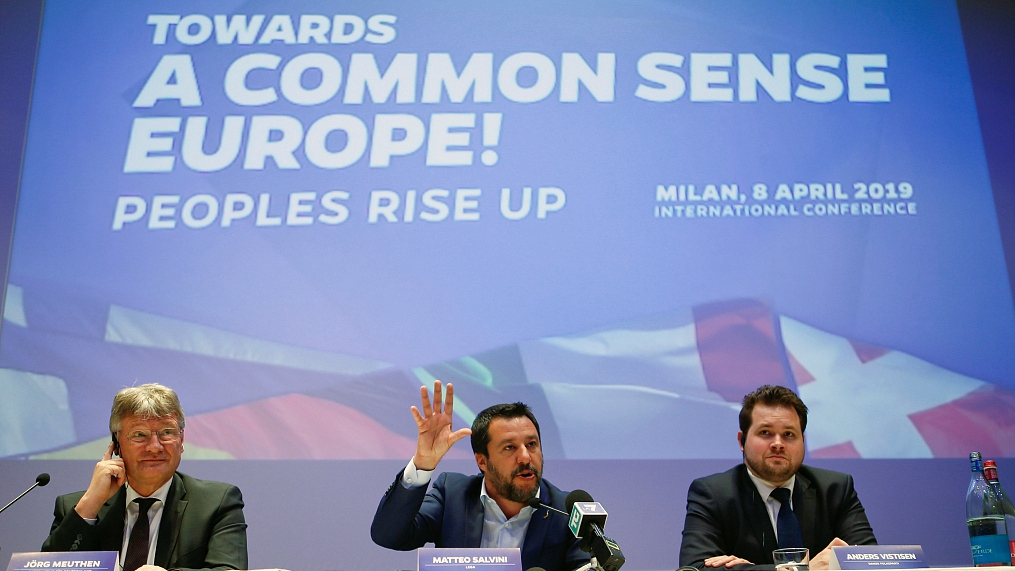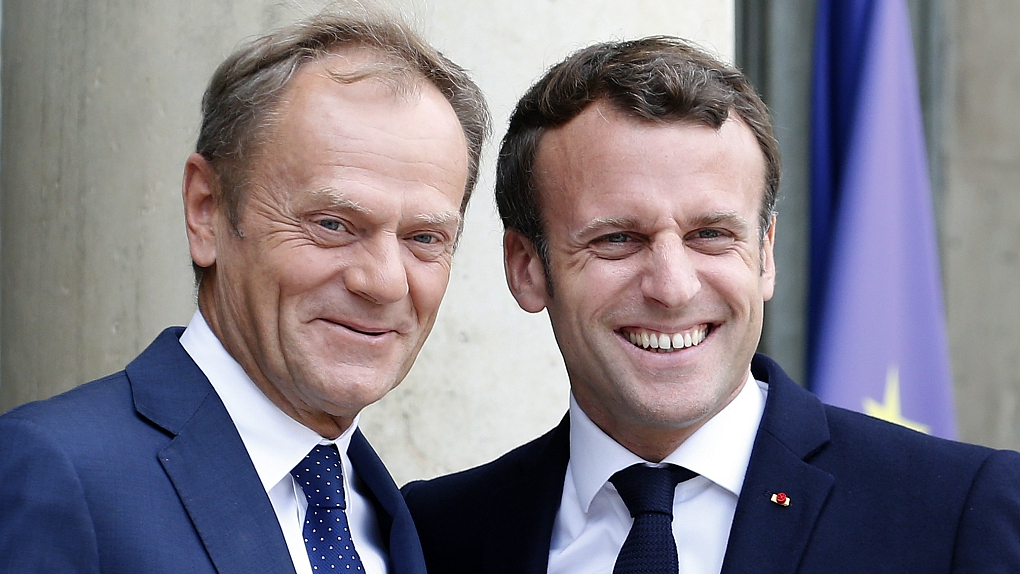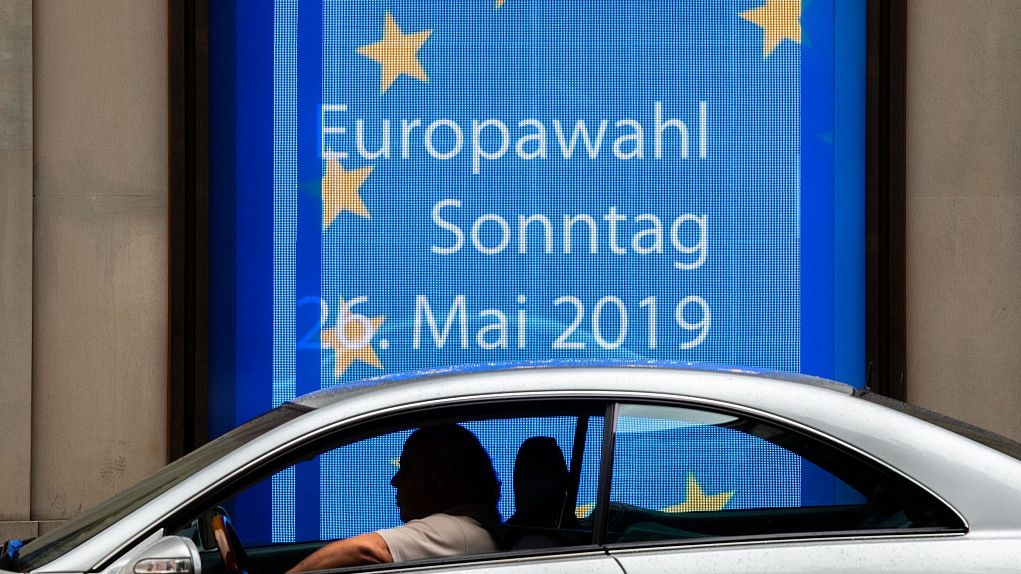
Europe
20:24, 22-May-2019
The EU elections matter in 2019, inside and outside the bloc
By John Goodrich

European Union elections rarely get hearts racing within Europe, let alone beyond its borders, but the 2019 polls are gearing up to be unusually consequential as new, competing forces fight for the power to shape the bloc's future.
A fresh centrist alliance pursuing French President Emmanuel Macron's reform agenda, a powerful new far-right grouping under the guidance of Italian Deputy Prime Minister Matteo Salvini – or another establishment coalition – all are possible as Europeans go to the polls on May 23-26.
Read more:
The intricacies of the EU mean little is absolute. The parliament is just one of several power blocs, but its makeup influences the European Council – the member state leaders – and impacts the role of the powerful European Commission.
The May polls will likely bring about a shift of dynamics rather than a wholesale changing of the guard. But those swings will matter.
The EU is a leading trade and investment partner with China and the United States, as well as an important player in geopolitical issues from Iran to climate change. The direction it takes – and the personnel in its top jobs – makes a difference to its interactions with the wider world, especially at such an uncertain juncture.
"The European Union is at a crucial moment, it was rocked by the euro- and then the refugee crisis, with Brexit for the first time ever a state is leaving the EU," Niko Switek, assistant professor at the Department of Political Science at Washington University, told CGTN.
"EU-skeptical and critical forces gained traction in the last years, pushing either for a rollback of integration, for an abolition of the common currency or for another exit from the EU."

Matteo Salvini (C), Italy's deputy prime minister, launches League's campaign for the European elections, in Milan, Italy, April 8, 2019. /VCG Photo
Matteo Salvini (C), Italy's deputy prime minister, launches League's campaign for the European elections, in Milan, Italy, April 8, 2019. /VCG Photo
Uncertainty runs deep. A recent survey commissioned by the European Council on Foreign Relations indicated support for EU membership was at a record high among its citizens, yet a majority feared the bloc could collapse within 10-20 years.
The European Parliament elections – essentially a series of contests within each of the 28 member states that feed into a single legislature – will paint a different picture of the state of the EU.
The headlines during the campaign have been dominated by the rise of rightist populist-nationalist forces and the decline of established parties – the extent this is born out in the results will be pivotal to the EU's direction over the next five years.
"These elections are a strong chance to see how much inroads populist and Eurosceptic political movements will have in European and specifically European Parliament politics," Anthony Zito, professor of European Public Policy at Newcastle University, told CGTN.
"The degree to which the populists do well will have an impact on the European Parliament's ability to form a workable majority to conduct its activities. The more the centrist positions have to build alliances across the spectrum may make the business of the European Parliament more difficult as well as raise questions about the legitimacy of the European Parliament."

French President Emmanuel Macron (R) welcomes European Council President Donald Tusk to Paris, May 20, 2019. /VCG Photo
French President Emmanuel Macron (R) welcomes European Council President Donald Tusk to Paris, May 20, 2019. /VCG Photo
EU leadership has been dominated by the center-right European People's Party (EPP) over the past five years – outgoing Commission President Jean-Claude Juncker and Council President Donald Tusk both come from the grouping – but the EPP is expected to lose a significant number of seats in the elections.
Who picks them up – and particularly if the populist-nationalist forces perform well and coalesce – could be crucial. Polls suggest the EPP and the Party of European Socialists will no longer hold a combined majority, so a fresh coalition will likely have to be built and that could mean a very different crop of leaders.
"After the election there will be quite some change regarding the parliamentary groups in the European Parliament," according to Switek.
"Where will the Macron party end up? Will the right-populist, far-right, right-extremist spectrum be able to form a common group (e.g., under the leadership of Italian interior minister Salvini)? Such a group could be the second strongest, and potentially heavily influence European politics."

The logo of the European Union is seen on the organization's offices in Berlin, Germany, May 21, 2019. /VCG Photo
The logo of the European Union is seen on the organization's offices in Berlin, Germany, May 21, 2019. /VCG Photo
The post-election wrangling between member states will dictate the identity of the incoming leaders and commissioners, people who will have a major say in external relations – whether that be trade talks with the U.S. or a bilateral investment deal with China – as well as issues such as immigration, environmental and competition policy.
Macron is likely to be a central player in the aftermath. His La Republique En Marche (LREM) party, campaigning under the banner Renaissance, is competing in the elections for the first time and could drive a new centrist tie-up in the parliament.
While the fragmentation of parties in the EU could lead to deadlock, it may also lead to long-promised reform. In France, LREM is going head-to-head with Marine Le Pen's far-right National Rally in a direct clash between pro-EU reformists and skeptical populists who are equally keen to shake things up.
It is these forces, represented in different ways in many countries, that will fight the declining established parties to shape Europe's future. A European army and closer union as set out by Renaissance, boosting Macron's bid for major reforms, or a loosening of ties and renewed questions over the eurozone. Both are keen to boost the influence of the European Parliament and make institutions more democratic.
The European Parliament elections can seem confused, 28 national elections typically fought on domestic rather than pan-European issues – but will nevertheless influence the direction of the EU and, as a result, how the world's largest trading bloc interacts with the rest of the globe.

SITEMAP
Copyright © 2018 CGTN. Beijing ICP prepared NO.16065310-3
Copyright © 2018 CGTN. Beijing ICP prepared NO.16065310-3